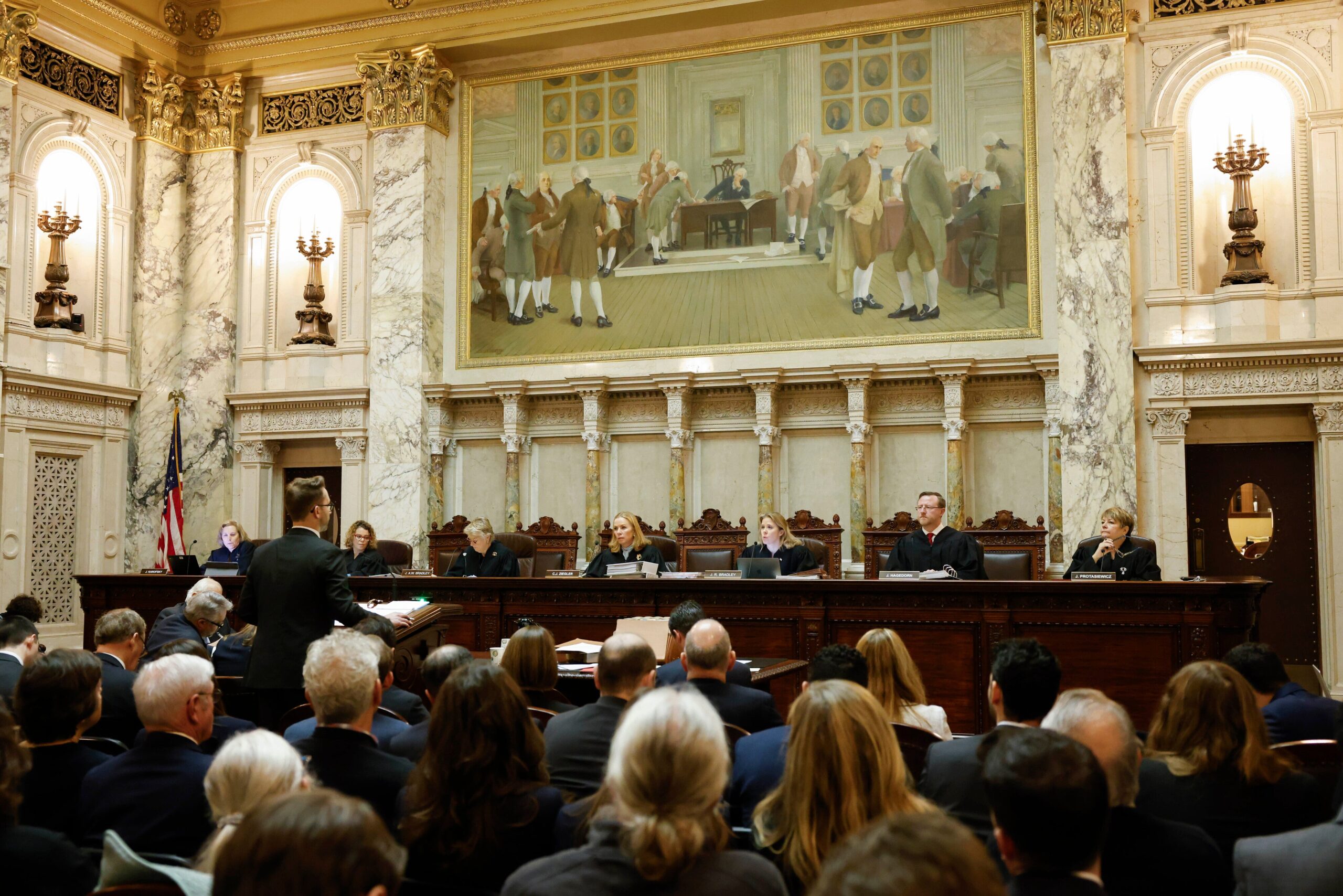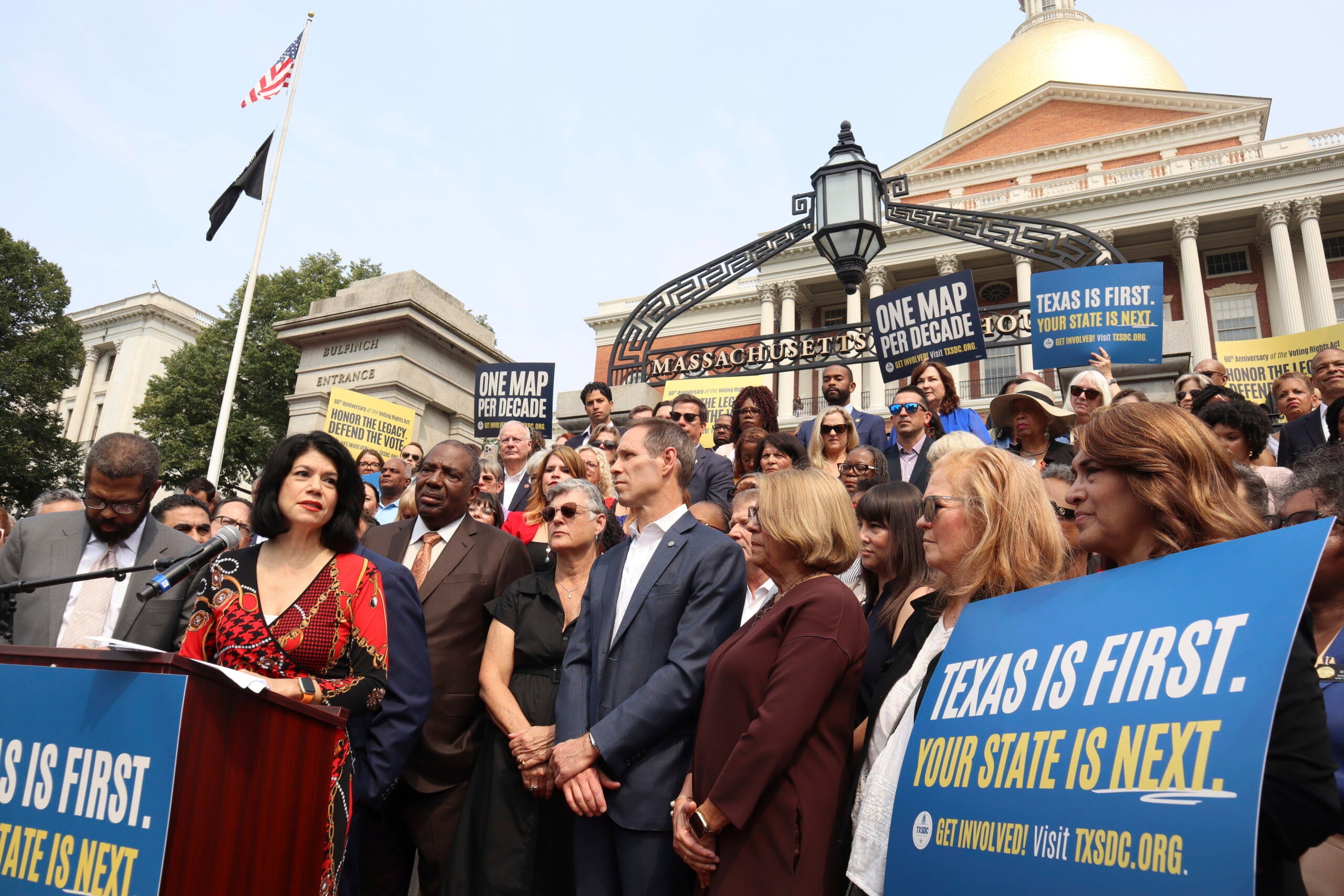Republican majorities would shrink but the party would maintain an upper hand in the Wisconsin Legislature under new redistricting plans proposed by the Democratic voters who convinced the state Supreme Court to declare the state’s Republican-drawn legislative maps unconstitutional.
Seven sets of map proposals were submitted to the court Friday afternoon by parties to a redistricting lawsuit that has generated national attention.
In its Dec. 22 opinion, the Supreme Court’s liberal majority said remedial maps must comply with the Wisconsin Constitution’s requirements that voting districts be compact, include equal populations and have boundaries that physically connect. That last requirement, known as contiguity, was the justification the court’s 4-3 liberal majority used to strike down current Republican drawn maps.
News with a little more humanity
WPR’s “Wisconsin Today” newsletter keeps you connected to the state you love without feeling overwhelmed. No paywall. No agenda. No corporate filter.
The majority said it would also consider “partisan impact” to measure political fairness of new maps, telling parties that it would take care to avoid picking new maps that favor one political party over another.
The proposals submitted Friday mark the beginning of the court’s efforts to replace maps that have helped Republicans cement lopsided legislative majorities in a state that’s otherwise known for close elections.
Maps from Democrats who sued maintain GOP majority
A brief filed by Democratic voters who brought the redistricting lawsuit claimed their proposed maps comply with all requirements, including political fairness.
An analysis they submitted to the court by a George Washington University political science professor suggests Republicans would win 52 percent of seats in the state Assembly, which works out to a GOP majority of around 52 of 99 seats. Republicans currently hold a 64-35 majority in the Assembly, leaving them just shy of a two-thirds supermajority.
In the state Senate, petitioners said, Republicans would also likely get a 52 percent majority, which works out to around 17 out of 33 seats. The GOP currently holds 22 seats, giving Republicans a supermajority.
A joint statement from law firms that represented Democratic voters called the submission of new maps “an important step for our clients and communities across the state whose voices have been silenced for the last 12 years” by the current GOP-drawn districts.
“Today’s filing is the next step to ensuring that all Wisconsinites – no matter where they reside in the state or which party they belong to politically – can get a fair shot to elect leaders who will best serve their communities,” read a written statement by Mark Gaber of the Campaign Legal Center.
Wisconsin Legislature ignores court’s ‘partisan impact’ requirement
The Republican-controlled Legislature took a different approach entirely in its brief to the court submitted Friday.
While attorneys for Republicans said the Legislature’s new map proposals complied with the court’s order that voting districts have boundaries that physically connect, they made no changes to address partisan impact.
The Legislature’s brief argued the only way for the court to ensure political neutrality when choosing new maps “is to stay out of politics altogether.”
“The Legislature’s proposed remedy does so. It corrects all noncontiguities by moving less than 0.1% of Wisconsinites with no conceivable ‘partisan impact,’” the Legislature’s brief said. “This remedy ensures that the Court exercises only judicial power and spares the Court the burden of inventing new “neutrality” standards.”
The Legislature also argued Wisconsin’s constitution grants no authority to the court to determine whether maps are politically fair to parties. Therefore, it said, the overall makeup of districts in its proposed maps “should remain largely the same.”
Maps submitted by the Legislature and the Democratic voters, along with others from Democratic Governor Tony Evers and various parties who intervened in the redistricting case, will now be analyzed by two redistricting experts hired by the liberal majority.
University of California, Irvine Political Scientist Bernard Grofman and Carnegie Mellon University Political Scientist Jonathan Cervas have until Feb. 1 to issue a report on the map proposals. If the two determine maps from the parties don’t satisfy the court’s requirements, justices tasked them with drawing their own proposals.
Wisconsin Public Radio, © Copyright 2025, Board of Regents of the University of Wisconsin System and Wisconsin Educational Communications Board.





